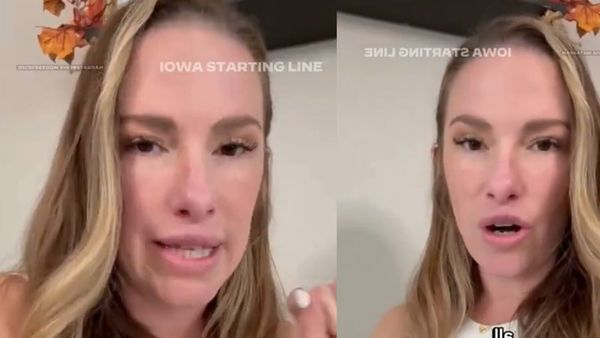
What does it take to achieve financial success? Each person has a different opinion, but the general idea of saving and investing holds true. The more you earn, save, and invest, the better you will do.
However, there are a few key signs that can help people gauge their financial health. Financial personality Humphrey Yang recently laid out a four-point checklist. You'll either feel good about your finances after seeing this checklist or know what actions you have to take to put yourself in a better spot.
Don't Miss:
- The same firms that backed Uber, Venmo and eBay are investing in this pre-IPO company disrupting a $1.8T market — and you can too at just $2.90/share.
- Accredited Investors: Grab Pre-IPO Shares of the AI Company Powering Hasbro, Sephora & MGM—Secure $0.63 Shares Before 8/14
You Can Cover A $1,000 Emergency Expense
Yang starts his checklist by saying that it's good if you can cover a $1,000 emergency expense. You never know when a surprise expense may show up, and it's better to use your checking account to pay it off than resort to a personal loan.
As a bonus, you can put the money in a high-yield savings account. That way, the money is growing at a respectable rate while generating risk-free returns.
Yang mentioned that 59% of people cannot pay a $1,000 emergency expense. If you are in that position, you may want to review your monthly expenses and look to put at least $100 per month into an emergency savings account. Picking up a short-term side hustle can also get you to the $1,000 threshold.
Trending: ‘Scrolling To UBI' — Deloitte's #1 fastest-growing software company allows users to earn money on their phones. You can invest today for just $0.30/share.
You Have No High-Interest Rate Debt
Having no high-interest debt is another positive sign that your finances are in a good position. Interest compounds over time, but the compounding is limited if the APR is low. Most people have to take out mortgages to buy homes, and luckily, these financial products have relatively low rates.
Some people run into financial hardships if they don't address their credit card debt. These financial products are notorious for high APRs, especially if you have low credit or recently missed a payment. You may have to make short-term sacrifices like curtailing expenses and working a part-time job to get out of credit card debt. It's better to make short-term sacrifices so you can avoid long-term financial hardships.
Not Buying Designer Goods And Status Symbols
The things you purchase reflect what you think about money. Yang mentioned that it is a good financial sign if you do not have any designer goods or status symbols. These purchases make you look wealthy, but fancy cars and goods don't always equate to wealth.
See Also: These five entrepreneurs are worth $223 billion – they all believe in one platform that offers a 7-9% target yield with monthly dividends
Yang said it is better to build wealth quietly. Instead of showing off with a designer bag, you can put that same money into the stock market. Index funds and ETFs make it easier to buy assets without knowing intricate details about individual stocks.
Saving Close To 15% Of Your Gross Income
Yang wrapped up his four-point checklist by saying that you should save close to 15% of your gross income. Investing money early and often gives it more time to grow.
If you aren't saving 15% of your gross income, you can start with your current percentage and inch it up by at least 1% per year. For instance, if you saved 10% of your gross income last year, aim to save 11% of your gross income this year. You can also boost your percentage by a higher amount if you earn extra money while keeping your living costs intact.
The 15% benchmark is a good starting point, but it's good to aim higher. Saving 20% to 25% of your gross income and putting it in retirement and brokerage accounts can result in a sizable nest egg by the time you retire.
Read Next: $100k+ in investable assets? Match with a fiduciary advisor for free to learn how you can maximize your retirement and save on taxes – no cost, no obligation.
Image: Shutterstock







